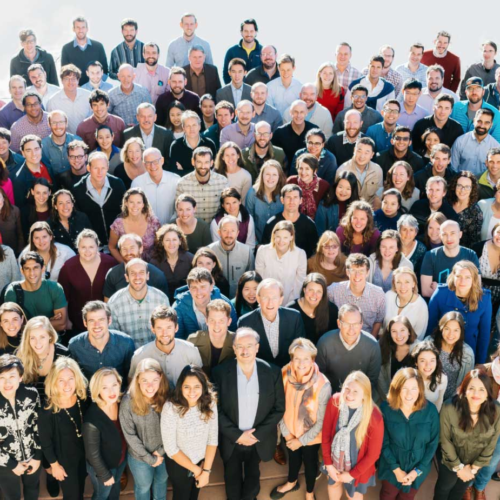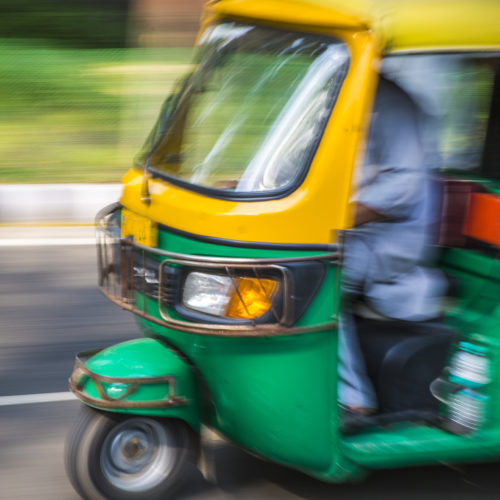
NITI Aayog and Rocky Mountain Institute Identify Pathways To Transform India’s Mobility System
Proposed solutions could accelerate India’s transition to a shared, electric, and connected mobility system, and support the wellbeing of India’s citizens, economy, and environment.
New Delhi (12 May) — India’s premier national policy thinktank, The National Institution for Transforming India (NITI Aayog), and Rocky Mountain Institute (RMI), a global nonprofit organization focused on driving the efficient and restorative use of resources, today presented specific and actionable solutions to transform India’s mobility sector. The opportunities presented were developed at a February meeting of 75 senior representatives from the Government of India, the private sector, and civil society.
India is at a decisive moment in the development of its mobility sector. Benefiting from lessons learned globally, and presented with the opportunity to avoid the traps of private vehicle ownership and heavy reliance on imported fuel, India could lead the world in advanced mobility solutions. Rapidly evolving technologies and business models for delivering mobility services have dramatic potential to transform the transportation sector, and India is uniquely positioned to take advantage of these developments due to a set of advantageous conditions and distinctive capabilities.
India Leaps Ahead: Transformative Mobility Solutions for All, produced by NITI Aayog and RMI and based on inputs from 75 stakeholders during the NITI Aayog and RMI Transformative Mobility Solutions Charrette in February, establishes a vision for the future of India’s mobility system, outlines a set of actionable solutions to realize the vision, and estimates the impact of such a transformation.
The report details a “leapfrog” opportunity that may allow India to save as much as 1 gigatonne of carbon emissions between 2017 and 2030, and approximately US$60 billion in annual diesel and petrol costs in 2030. These savings are made possible by the synergistic impact of improvements in systems, manufacturing, and shared infrastructure, including better urban design, high-utilization business models, accelerated adoption of electric vehicles (EVs), and other levers. Pursuing this path for mobility development would enhance energy security, reduce air pollution and carbon emissions, and create dynamic economic opportunities.
Transformation of the mobility sector represents an opportunity to create value not just for passengers, but also for the electricity sector. India has set a target of installing 175 gigawatts of renewable energy generation by 2022. This ambitious target, coupled with India’s electric mobility vision, can create more value and be more readily achieved when pursued together, rather than separately.
The report’s vision outlines a shared, electric, and connected mobility future that provides India’s citizens with clean, affordable, cost-effective, and reliable transportation options to support and enhance their daily lives. As transporation costs impact low- and moderate-income cititzens the most, this transformation could also inclusively provide important economic and social benefits to this population segment. A set of enabling conditions—dynamic public- and private-sector leadership, entrepreneurial culture, ability to build infrastructure right the first time, and a unique confluence of information technology and manufacturing skills—positions India to lead the world in advanced mobility solutions with great benefits for its citizens.
The report estimates that India can conservatively save up to 64% of anticipated passenger mobility-related energy demand and 37% of carbon emissions in 2030 (totaling 1 gigatonne of CO2 savings between 2017 and 2030) compared to business as usual by pursuing a shared, electric, and connected mobility future. By 2030, this would result in an annual diesel and petrol reduction of 156 million tonnes of oil equivalent (MTOE). At current oil prices, this would imply a net annual fuel cost savings of approximately 3.9 lakh crore by 2030 (US$60 billion). Reductions in energy consumption and carbon emissions result from a synergistic impact of improvements in:
- Systems integration: Enabling widespread adoption of mobility solutions through improved urban design, prevalence of shared services, and availability of interoperable transport data.
- Scaled Manufacturing: Facilitating market creation through policies and mechanisms that enable manufacturing of EVs and necessary components in successive segments, based on their market readiness.
- Shared Infrastructure Development: Better urban design, where a larger fraction of mobility demand is met by nonmotorized transit and public transit, and access to vehicle-charging infrastructure enables higher penetration of EVs.
India’s current mobility system reflects many of the underlying properties of this new mobility paradigm. These elements include a high share of nonmotorized transit, low private-vehicle ownership, a diverse set of mode options, and strong IT capabilities. As India continues to develop at a rapid pace, the report outlines strategies to invest in and enhance these attributes as they serve as the foundation of a shared, electric, and connected mobility system.
Despite these supportive conditions, India faces challenges that signal the gravitational pull of privately owned vehicles, and reinforces the importance of pursuing an alternative mobility future. Every day, nearly 50,000 new motor vehicles (two-, three-, and four-wheelers) hit the roads and India has seen a 10% annual increase in vehicle registration over the past decade. If current trends continue, the number of personal vehicles in India could increase three- to four-fold by 2030, at significant direct and indirect costs to the economy and society. The solutions outlined in the report can deliver convenient and affordable access to mobility, while avoiding the pitfalls of the conventional mobilty paradigm.
The February event explored technologies, business models, and policies, and developed actionable steps to help India leapfrog traditional approaches to passenger mobility and achieve an advanced mobility future. The event provided a unique forum where stakeholders engaged in focused dialogue and innovated on issues that have historically been pursued in silos. This extensive collaboration helped unlock new opportunities that can position India as the global leader in innovative mobility solutions.
Statement from Mr. Amitabh Kant, CEO NITI Aayog
“India is at the cusp of making a transition to transformative mobility solutions that are economically viable, environment friendly and socially desirable. The main elements for India’s mobility transformation are system integration, shared infrastructure development and scaled manufacturing. Accordingly, the charrette, organised in February 2017 with a multitude of stakeholders, deliberated upon strategies and ideas to make this transformative shift. This report summarizes the solutions emerging out of the charrette process and lays a path that India needs to pursue.”
Statement from Mr. Jules Kortenhorst, CEO Rocky Mountain Institute
“India has a historic opportunity to lead the world in transforming its mobility sector. The country can combine its entrepreneurial spirit, robust public- and private-sector partnerships, and history of innovation in information technology and manufacturing with the advances in clean energy and transportation technology to drive global mobility innovation. This report provides a clear roadmap to realize the powerful economic, environmental, and social benefits these approaches will provide, both to Indian citizens and to those around the globe.”
The report can be found at: https://rmi.org/insights/reports/transformative_mobility_solutions_india
CONTACT:
Shikha Juyal
Economic Officer, Infrastructure-Connectivity Vertical, NITI Aayog
Tel: +91 1123042049
Email: shikha.juyal@nic.in
Todd Zeranski
Marketing Manager, Rocky Mountain Institute
Tel: +1 917-670-6568
Email: tzeranski@rmi.org
Vindhya Tripathi
Communications Consultant (India)
Tel: +919810537978
Email: vindhya.tripathi@gmail.com

About Rocky Mountain Institute
Rocky Mountain Institute (RMI)—an independent nonprofit founded in 1982—transforms global energy use to create a clean, prosperous, and secure low-carbon future. It engages businesses, communities, institutions, and entrepreneurs to accelerate the adoption of market-based solutions that cost-effectively shift from fossil fuels to efficiency and renewables. RMI has offices in Basalt and Boulder, Colorado; New York City; Washington, D.C.; and Beijing.

About NITI Aayog
The National Institution for Transforming India, also called NITI Aayog, was formed via a resolution of the Union Cabinet on January 1, 2015. NITI Aayog is the premier policy ‘Think Tank’ of the Government of India, providing both directional and policy inputs. While designing strategic and long term policies and programmes for the Government of India, NITI Aayog also provides relevant technical advice to the Centre and States.